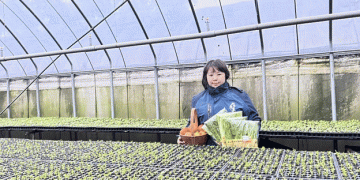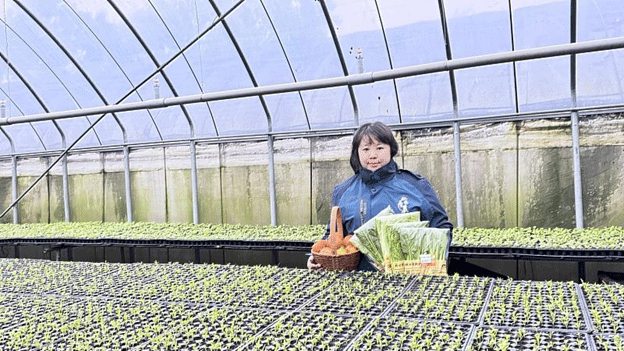Each year on March 8th, the world celebrates International Women’s Day, a time to recognize the contributions of women across all sectors. In agriculture—a field long perceived as male-dominated—a quiet revolution is taking place. In Taiwan, young women are stepping forward, blending tradition with innovation. One inspiring example is Lin Chih-Yi, the heart and soul behind Yulin Organic Farm in New Taipei City’s Linkou District.
Graduating with a degree in Business Management, Lin returned to support her aging parents in running their organic farm. But she didn’t just maintain it—she reinvented it. Introducing biological farming techniques, she created a closed-loop ecosystem: after harvesting vegetables in greenhouses, chickens are released to feed on insect pests and their larvae. This natural pest control method reduces the need for pesticides, improves soil health, and aligns with ecological principles. The added benefit? Fresh organic eggs.
Beyond production, Lin leveraged her business background to enter the retail space. By collaborating with other organic farms, she helped distribute produce through PX Mart’s local small-farm direct purchase zone, reducing food miles and carbon emissions while promoting local consumption.
But Lin’s impact goes beyond farming. She turned Yulin Farm into a food and farming education center, hosting over 100 educational programs annually. Certified in food-agriculture education, Lin partners with local elementary schools like Xinlin and Jiabao to bring children into the field—literally. Students plant, harvest, and even sell their produce, with proceeds donated to social welfare organizations. Through this hands-on learning, children develop not only a respect for sustainable agriculture, but also a sense of community service.
Lin’s initiatives have also welcomed corporate and social welfare partnerships. From car rental companies volunteering on-site to special education students learning to grow and donate vegetables to orphanages, Yulin Farm has become a model of inclusion, education, and sustainability.
Broader Trends in Women-Led Agriculture
According to Taiwan’s Council of Agriculture (2023), over 30% of newly registered young farmers are women, many with backgrounds in science, education, or business. A 2022 FAO report also highlighted that women in agriculture are increasingly leading in areas like agroecology, local food systems, and education—sectors that are key to climate resilience and food security.
Globally, organizations like the UN Women and World Farmers’ Organization emphasize that women-led initiatives are often more environmentally conscious and community-oriented. Lin Chih-Yi’s approach is a testament to this.
Lin Chih-Yi’s story is not just one of a young woman stepping into agriculture—it’s a narrative of transformation, where organic farming meets education, business, and community. As more women enter the agricultural space with new ideas and a passion for sustainability, the future of farming looks not only greener but more inclusive and resilient.































